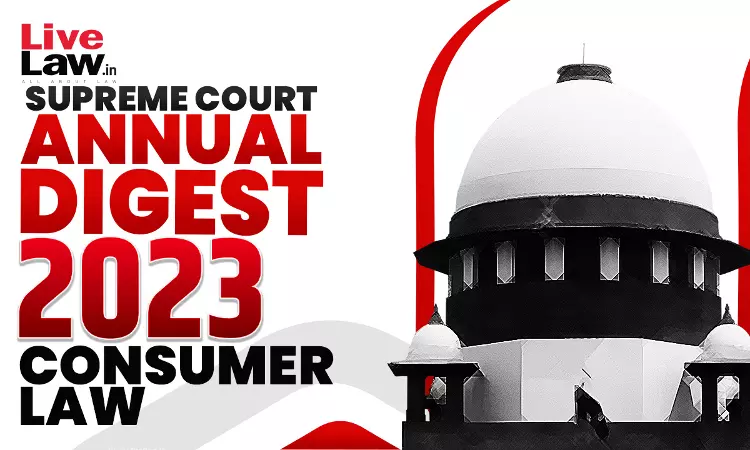- Home
- /
- Supreme court
- /
- Supreme Court Annual Digest 2023 -...
Supreme Court Annual Digest 2023 - Consumer Law
LIVELAW NEWS NETWORK
31 Jan 2024 12:13 PM IST
A pedantic and hyper-technical approach would cause damage to the very concept of consumerism. (Para 23) 2023 LiveLaw (SC) 442Amend Consumer Protection Rules on appointment process of commission members within 3 months : Supreme Court to Centre, States. 2023 LiveLaw (SC) 201Builder has obligation to seek completion certificate - It is no part of the flat owner's duty to apply for a...
Next Story



